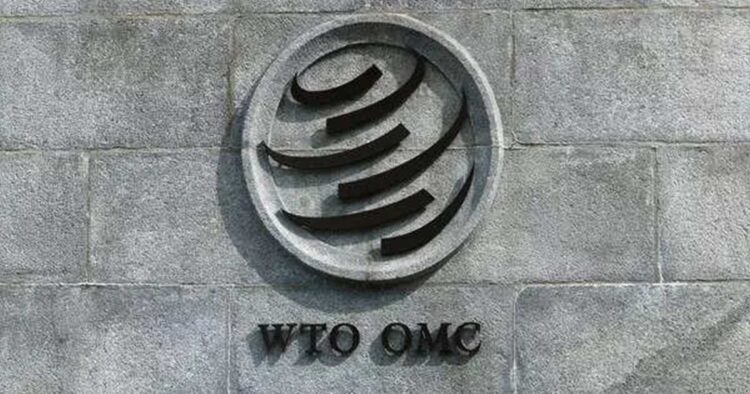Over 70 countries have recently agreed to enhance trade in services through a World Trade Organization (WTO) agreement. This move could potentially benefit Bharatiya companies by providing them with equal opportunities to access markets in these nations, as long as they meet the required standards.
The participating countries include Albania, Argentina, Australia, Bahrain, Brazil, Canada, China, Colombia, Costa Rica, Japan, Korea, New Zealand, Norway, Saudi Arabia, Singapore, Switzerland, the United Arab Emirates, and the United States of America. These nations have decided to take on additional obligations under the General Agreement on Trade in Services (GATS).
The aim of this initiative is to facilitate smoother trade in services among the participating countries and to extend similar concessions to other WTO members. The additional obligations under the GATS schedules primarily focus on mitigating unintended trade restrictive effects related to licensing requirements, qualification procedures, and technical standards.
Government sources have highlighted that these new commitments aim to benefit all WTO members by reducing trade costs in services. According to estimates by the WTO, the agreement could lead to a 10% reduction in trade costs for lower-middle-income economies and a 14% reduction for upper-middle-income economies, resulting in overall savings of $127 billion.
Bharat’s commerce ministry has clarified that the certification of updated GATS schedules for these WTO members will not establish a precedent for incorporating outcomes in the WTO, including from joint statement initiatives (JSIs). Additionally, the ministry emphasized that these additional commitments do not hinder the development of necessary disciplines by WTO members through multilateral work, as outlined in GATS Article VI.4.
Overall, the agreement reflects a collaborative effort among WTO members to promote fair and efficient trade in services globally. It opens up new opportunities for businesses, including those in Bharat, to expand their presence in international markets while adhering to standardized regulations and procedures.

















Comments